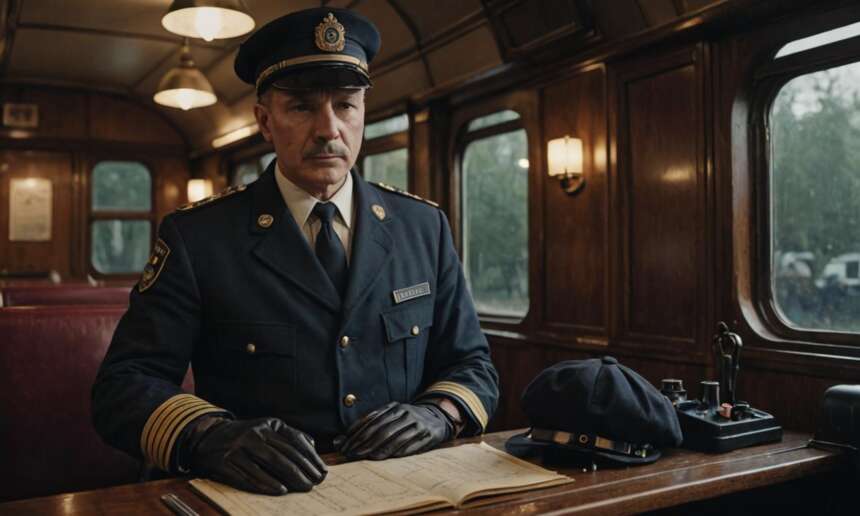Train travel is a vital mode of transportation in the United Kingdom, with millions of passengers relying on trains to commute and travel across cities and regions. Behind every smoothly operated train is a skilled individual responsible for its safe navigation and timely arrival. In the UK, the professional responsible for driving trains holds a specific title, reflecting their crucial role in the transportation network.
The Role of a Train Driver
A train driver in the UK is a highly trained professional tasked with operating locomotives and ensuring the safe movement of passengers and goods from one destination to another. They are responsible for adhering to strict schedules, managing the train’s speed, and following all safety protocols to prevent accidents and ensure passenger safety.
What is a Train Driver Called in the UK?
In the United Kingdom, a train driver is commonly referred to as a “train driver” or “locomotive driver.” These terms are widely used across the industry and are synonymous with the profession of operating trains. Whether it’s a commuter train running through busy urban centers or a long-haul service traversing the picturesque countryside, the individual at the controls is known as a train driver.
Training and Qualifications
Becoming a train driver in the UK requires rigorous training and a set of specific qualifications. Prospective train drivers typically undergo extensive training programs provided by train operating companies or specialized training institutions. These programs cover various aspects of train operation, safety procedures, signaling systems, and emergency protocols.
Additionally, aspiring train drivers must obtain relevant licenses and certifications to operate trains legally. This may include acquiring a train driving license issued by the relevant regulatory authority and passing medical assessments to ensure they meet the required health standards for the role.
Responsibilities of a Train Driver
Train drivers in the UK have a range of responsibilities beyond simply operating the train. Some of the key duties include:
- Operating the train in a safe and efficient manner.
- Adhering to timetables and schedules.
- Monitoring and adjusting the train’s speed as necessary.
- Reacting promptly to signals and other communications.
- Conducting pre-departure checks and inspections.
- Communicating with passengers and providing assistance when needed.
- Coordinating with other railway staff to ensure smooth operations.
In conclusion, a train driver in the UK is commonly known as a “train driver” or “locomotive driver.” These individuals play a crucial role in the efficient and safe operation of the country’s rail network, ensuring that passengers and goods reach their destinations promptly and securely. With extensive training, qualifications, and a strong sense of responsibility, train drivers uphold the highest standards of professionalism in their essential role within the transportation industry.
Work Environment
The work environment for train drivers in the UK can vary widely depending on the type of service they operate. Some may work on busy commuter routes, navigating through urban areas with frequent stops, while others may work on long-distance services, traveling across vast distances. Additionally, train drivers must be prepared to work in various weather conditions and sometimes irregular hours, as train services often run throughout the day and night.
Equipment and Technology
Train drivers utilize advanced equipment and technology to safely operate trains and ensure efficient transportation. Modern locomotives are equipped with sophisticated control systems, communication devices, and safety features that aid drivers in their duties. Additionally, train drivers often undergo training to familiarize themselves with the latest technological advancements in the rail industry.
Union Representation
Many train drivers in the UK are members of trade unions that represent their interests and negotiate on their behalf regarding wages, working conditions, and other employment matters. These unions play a vital role in advocating for the rights and welfare of train drivers, ensuring fair treatment and adequate support within the railway industry.
Frequently Asked Questions
| Question | Answer |
|---|---|
| What are the typical working hours for train drivers? | The working hours for train drivers can vary, with some operating on regular shifts while others may work irregular hours, including nights and weekends, to accommodate the needs of different train services. |
| Are there opportunities for career advancement in the field of train driving? | Yes, there are opportunities for career advancement in the field of train driving. Experienced train drivers may pursue roles in management, training, or specialized areas within the rail industry. |
| What are the main challenges faced by train drivers? | Train drivers may face challenges such as adverse weather conditions, technical issues with trains, and navigating through congested railway networks. Additionally, ensuring passenger safety and adhering to strict schedules are constant priorities for train drivers. |




